
Alphabetical Menu
Chronological Menu

Ascension is a provocative, fly-on-the-wall glimpse of the Chinese economy today. Director Jessica Kingdon shows footage of workers in lower-end, blue-collar jobs up to workers in high-end jobs. There's no voice-over narration to spoon-feed the audience about what they're seeing or to comment on any of it. She trusts your intelligence, perceptiveness and critical thinking skills to make your own conclusions, much like in a Frederick Wiseman documentary. Imagine the factory scenes in Ron Fricke documentary Samsara, but without the music or time-lapse cinematography and you'll get an idea of what watching Ascension is like. An accurate way to describe it is that it's a thorough, immersive experience of the Chinese economy that lets you, the audience, be the narrator. Whether you're watching workers assembling sex dolls at a factory or a poultry plant or a job recruiting fair, there's always something for you to learn just through the act of observation. Even if you know a little about the Chinese economy beforehand, you'll still have something to take away from it, especially if you compare it to the U.S. economy or other economies. Ascension is also very well-edited and shot, so, like with any great doc, there's just the right balance of style and substance. Kingdon should also be commended for ending the film at a water park because it's unexpected. That, among other editing choices, make for a doc with a few surprises every now and then. At a running time of 1 hour and 38 minutes, Ascension opens at IFC Center via MTV Documentary Films. 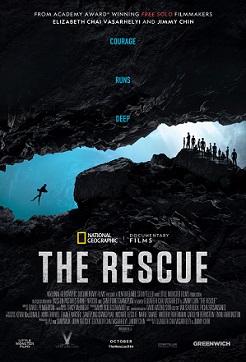
The Rescue is a engrossing and riveting documentary that details the 17-day search for 12 boys from a soccer team and their coach who were trapped inside an underwater cave in Thailand back in 2018. Co-directors Jimmy Chin Elizabeth Chai Vasarhelyi includes interviews with some of the cave divers, namely Vern Unsworth, Rick Stanton and John Volanth. Those brave rescuers, among others, risked their lives as they dived into the deep waters of the cave with limited to zero visibility. The co-directors also show footage of the Thai children from inside the cave as well as underwater footage which makes for an equally thrilling, horrifying and poignant experience. You'll learn the details of how the rescuers had to brave the elements to try to rescue the Thai boys and the setbacks that they experienced along the way. What truly elevates The Rescue, though, is not just that suspenseful footage, but the way that the filmmakers humanize the subjects whom they interview. Even Rick Stanton's girlfriend, Siripon Bugnngern, gets a chance to speak her mind and to explain what it's like being in a relationship with someone who's a cave diver. Standon himself also ponders the question of how his experiences as a cave diver has affected the relationships in his life. That candidness adds plenty of substance to the documentary. It's also worth mentioning how well-edited the film is as it combines the talking head interviews with the footage and even some animated scenes that show the map of the cave to show the rescuers' location and progress to the audience. There's not a dull moment to be found nor does the film become exhausting. Just like a great documentary should be, The Rescue finds just the right balance between entertaining the audience and provoking them emotionally. Man on Wire accomplished that feat, too. At a running time of 1 hour and 47 minutes, it's a powerful, gripping and emotionally resonating experience. It opens at Angelika Film Center via National Geographic Documentary Films. Golden Voices 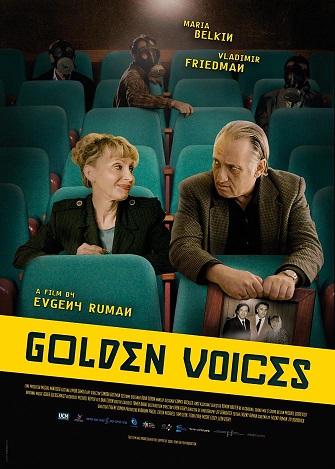 After the collapse of the Soviet Union in 1990, Victor (Vladimir Friedman) and Raya Frankel (Mariya Belkina), a married Soviet Jew couple, leave their home in the USSR in hopes of starting a new life in Israel. Raya finds a job as a phone sex operator while Victor tries to find a job himself. She lies to him about her true line of work which puts their marriage to the test as they struggle to make ends meet far away from their homeland. The screenplay by writer/director Evgeny Ruman and co-writer Ziv Berkovich brims with warmth, wit and tenderness as it explores the relationship between a married couple. Victor and Raya are both elderly, but they're written as fully-fleshed human beings, not as "old." They have dreams, yearnings, frustrations and regrets just like every human being, young or old, does. There are no viagra jokes nor are there any villains. Ruman and Berkovich deftly blend the humor with the sad, dark elements that gradually rise to the surface without becoming too dark or emotionally devastating. Similarly, the humor doesn't go too far or result in clunkiness. Yes, the phone sex work that Raya has is funny, but the screenwrites don't let that humor overstay its welcome. The root of comedy, after all, is tragedy which the filmmakers grasp. They wisely avoid schmaltz and melodrama, especially during the later part of the second act as tensions between Victor and Raya arise. It's also worth mentioning how they incorporate exposition in a natural way. For example, they reveal later on the fact that Victor and Raya don't have children together. Evgeny Ruman and Ziv Berkovich also deserve to be commended for trusting the audience's emotions, intelligence and imagination. Their use of metaphors that leave room for interpretation, i.e. the ocean which could represent freedom. There's no first act showing Victor and Raya's life in the USSR nor is there a third act scene that ties everything up neatly with a bowtie; the last line of the film ends everything on just the right note while letting the audience use their imagination to fill the rest in. Admittedly, there are some contrivances like when a movie theater owner just so happens to recognize Victor from his past dubbing job at just the right time and then just so happens to offer him a job, but that's a forgivable flaw. There's a wonderful subplot involving a man who Raya interacts with and messes with his emotions in a way that could've made her unlikable, but the way that she shows compassion toward him and, eventually, remorse is quite brave, mature and admirable of her. It's refreshing to see such an interesting, complex role for a female character on screen. Golden Voices is also the rare film that's made for adults and that treats the audience not only as mature adults, but also as human beings. Mariya Belkina gives a radiant and genuinely moving performance as Raya much like Pauline Collins does in Shirley Valentine, Barbara Sarafian in Moscow, Belgium and Paulina Garcia in Gloria. She provides much of the film's heart and soul, and her chemistry with Vladimir Friedman as Victor feels palpable. They actually seem like a married couple not only because of the organic screenplay, but also because of the raw, natural performances from both Belkina and Friedman. It takes emotional maturity and generosity to handle such emotionally complex roles, so bravo to both of them for having those essential traits that breathe life into their roles. At a running time of 1 hour and 28 minutes, Golden Voices is a triumph. It's warm, wise and wonderful with just the right balance of humor and heartbreak. 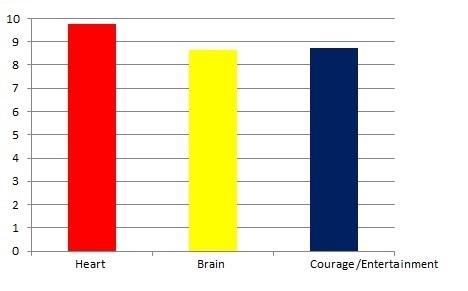 No Time to Die 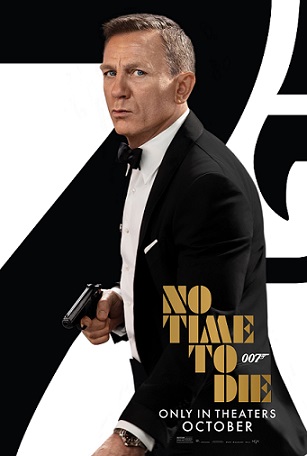 James Bond (Daniel Craig) comes out of retirement to stop a mysterious villain, Lyutsifer Safin (Rami Malik), from using a biological weapon of mass destruction which can destroy the world. He teams up with his partner, Madeline (Léa Seydoux), to try to save the world while Q (Ben Whishaw) assists them. After Live and Let Die, Tomorrow Never Dies and Die Another Day, now there's yet another Bond film with "die" in the title, No Time to Die, which is just as dull and unimaginative as its title. The screenplay has four writers, namely, Neal Purvis, Robert Wade, Phoebe Waller-Bridge, and Cary Joji Fukunaga, yet it feels unwritten as though it were a first draft. A prologue introduces the villain, Lyutsifer Safin, and the younger version of Madeline, before the opening credits sequence with the theme song, but those initial 10 minutes or so don't hook the audience enough. Unfortunately, the rest of the film rarely becomes exciting except for a car chase early on. The action scenes feel less and less thrilling as the suspense wanes. It's no help that the villain is a very uninteresting, forgettable character with a terrible name which is disappointing and makes the film less suspenseful. An action thriller is only as good as its villain, after all. Ana de Armas shows up and sizzles in her role as Paloma, but scenes are ephemeral. Daniel Craig and Léa Seydoux lack chemistry and their rapport falls flat. Most importantly, though, No Time to Die fails to entertain the audience because it lacks comic relief, wit or any cool gadgets that you'd expect from a Bond film. When it tries to engage you on an emotional level in the third act for a reason that won't be spoiled, the beats don't land and instead lead to schmaltz which doesn't belong in a Bond film and leads to an uneven tone. The best aspect of No Time to Die is its well choreographed stunts, stylish set designs and picturesque landscapes that look glorious and breath-taking on the big screen, especially in IMAX. Some of the film was shot with IMAX cameras, but most of it wasn't, so not all of the scenes make use of the entire IMAX screen if you choose to watch it that way. The music score tries too hard to add intensity without compensating for the lack of tension in the screenplay. Daniel Craig adds some charisma which helps to elevate the lifeless screenplay to mediocrity. The action scenes are easy-to-follow without choppy editing (unlike the nauseating action in Snake Eyes), so at least the film has that going for it as well. However, with a running time of 2 hour and 43 minutes, just 2 minutes short of Boyhood's running time, No Time to Die is yet another bloated, vapid and overproduced blockbuster that's more exhausting than fun or exhilarating. 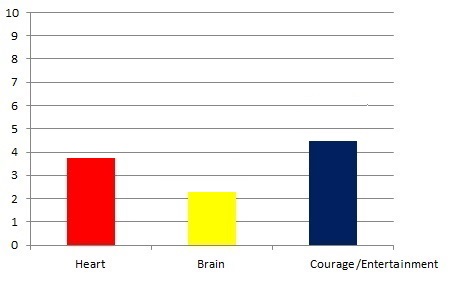 South of Heaven 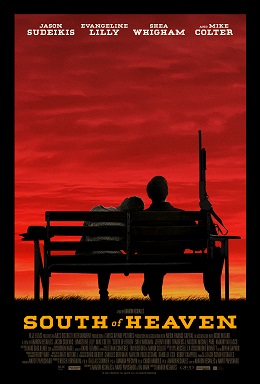 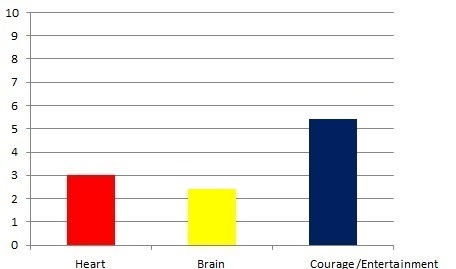 Suzanna Andler 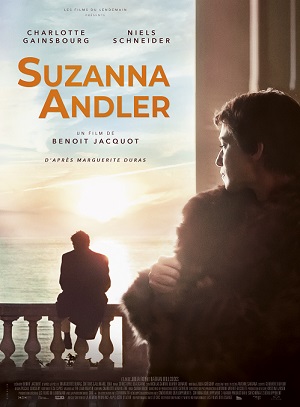
 |